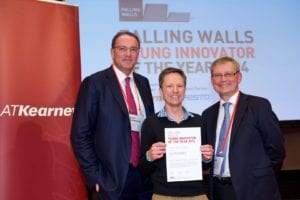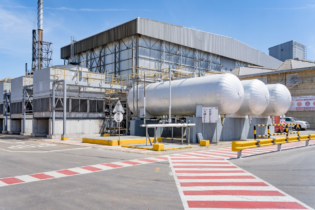Dr Dyllon Randall of engineering, management and specialist technical services Aurecon’s water unit in Tshwane, recently won third place at the Falling Wall Lab in Berlin, Germany’s capital, for his work in wastewater treatment.
Randall was one of 100 young scientists and professionals to present a creative solution to the social challenges of our time for the competition. The Falling Walls Lab aims to advance scientific and entrepreneurial visions and to initiate and promote cross-disciplinery exchange between young researchers and professionals.Eutectic Freeze Crystallisation
Randall presented his work on using a unique technology called Eutectic Freeze Crystallisation for wastewater treatment. Eutectic Freeze Crystallisation provides a more sustainable method for the treatment of highly concentrated wastewaters (brines). Randall’s showed that up to 97% of a reverse osmosis brine can be converted into pure calcium sulphate, pure sodium sulphate, and pure water. Capable of producing potable water, as well as a number of pure salts, the energy efficient process’s products can be sold by clients for additional profits.“Participating in the Falling Walls Lab competition was an amazing opportunity to meet like-minded people who also want to make a difference when it comes to some of the most pressing issues facing society,” says Randall. Winners were selected by an international jury representing world experts from academia and industry under the direction of Professor Carl Henrik Heldin, chairman of the Nobel Foundation, and Dr. Martin Sonnenschein, managing director central Europe at global management consulting firm A.T. Kearney.








